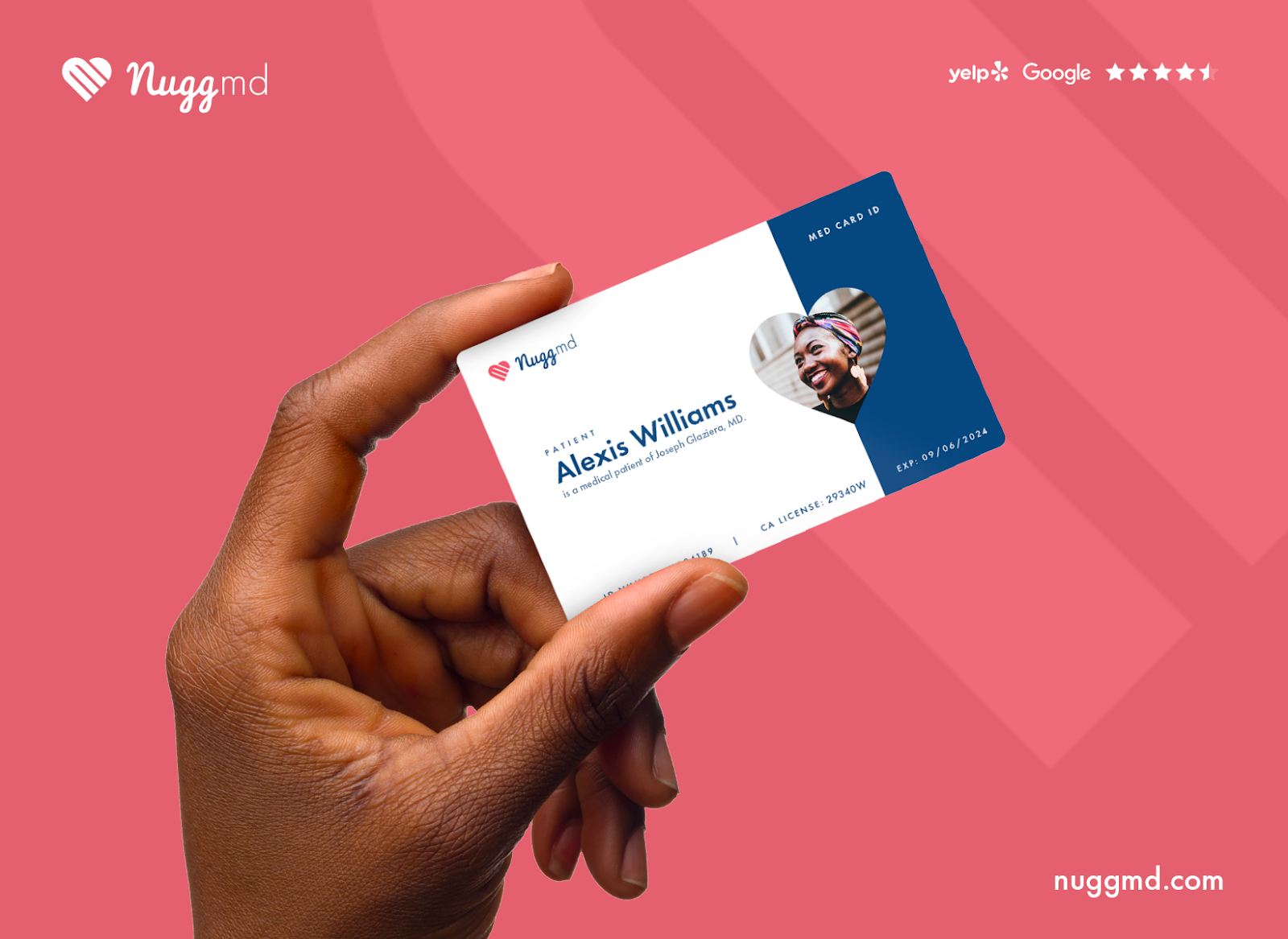
Stress is experienced by all humans. When you encounter an external occurrence, called a stressor, your body produces a mental and physical response. Not all stress is negative, but when it continues without relief stress can become a problem.
Stress, as we know it, is a relatively modern term in medicine. In 1936, researcher Hans Selye first wrote about General Adaptation Syndrome, describing the body’s response to stressors. The word “stress” wasn’t regularly used until after WWII, and the definition of stress has become a broad concept over the years.1
The 2022 Stress in America survey conducted by the American Psychological Association found that levels of stress have been rising among adults in recent years, with 27% reporting that most days they are too stressed to function. Adults aged 18-44 reported feeling completely overwhelmed by stress more than older groups.
The survey also found that 55% of Americans are stressed during the day, which is much higher than the global average.
What Causes Stress?
Stress is caused by external factors, like an upcoming job interview or an argument with a friend, and usually goes away once the situation is resolved. It is different from anxiety, which is an internal reaction to stress.
When your body perceives a threat, it releases hormones that kickstart a variety of physiological processes meant to protect you. If stressors are continuously present, your stress response stays activated, putting you at risk for many health problems.
The way you react to stressors is affected by factors like:
- Genetics: Some people may have differences in the genes that affect their stress response.
- Life experience: Those who have experienced trauma or abuse sometimes have stronger stress responses.
Signs & Symptoms of Stress
If you are experiencing stress, you may have one or more of the following symptoms:
- Body pain or headaches
- Feeling like your heart is racing
- Exhaustion or trouble sleeping
- Dizziness or shaking
- High blood pressure
- Tense muscles or jaw clenching
- Problems with stomach or digestion
- Sexual dysfunction
- Weakened immune system
- Anxiety
- Irritability
- Depression
- Panic attacks
- Excessive worry or uneasiness
These symptoms are common and are part of the body’s fight or flight response to stressors.
Long-term exposure to stress can impact your relationships and quality of life. It can also increase the risk of certain health problems, including:
- Anxiety disorders
- Depression
- Digestive problems
- Headaches
- Cardiovascular disease or stroke
- Muscle tension and pain
- Problems with sleep
- Weight gain
- Memory impairment
- Difficulty with concentration
Stress can be prevented or mitigated. It is important to manage your stress and avoid unhealthy coping methods. If you are having trouble managing your stress, it may be time to talk to a professional.
Seek help immediately if you are in distress or thinking about hurting yourself. Call 988 to reach the Suicide and Crisis Lifeline, available 24/7 in the United States.
Can Cannabis Help Alleviate Symptoms of Stress?

With so many consumers using cannabis to self-medicate, it may seem like a given that medical marijuana can address symptoms of stress. But current research on cannabis for stress relief is not definitive.
- When given methodically, CBD has been shown to reduce heart rate and blood pressure in animals experiencing stress due to immobilization.2 Results from another animal study support these findings.3
- A 2017 randomized controlled trial (RCT) studied the response of 42 cannabis users to physiological and psychosocial stress. In both a stress and no-stress situation, the cannabis users exhibited a blunted response to stress.4
- A medical review of studies involving CBD and anxiety-related disorders found evidence that CBD reduces learned fear. These results implicate a potential for CBD as a therapy for anxiety, which can be extrapolated to stress.5
- According to a 2015 medical review, CBD has potential as a treatment for stress and anxiety disorders and does not seem to induce anxiety at high doses, like THC and other psychoactive cannabinoids.6 In addition, researchers found that high doses of CBD were best to mediate the intoxicating effects of THC in humans.7
- A 2021 review concluded that long- and short-term marijuana use affect the human stress response. More study is needed to determine whether or not this is an adverse response and to fully understand how this works.8
Most studies look at whether marijuana helps with anxiety; results have been mixed, and there is a possibility that symptoms of stress and anxiety are being mislabeled. Stress can lead to anxiety, but they are not the same, and deeper research is needed to understand proper dosing methods and how cannabis may affect both conditions. Of note is that using marijuana for stress relief may work too well; the blunted responses observed by researchers seem to indicate a lack of emotional reaction to stressors.
Although medical cannabis is believed to be completely safe by many consumers, it is important to stay educated on its possible adverse effects. Using cannabis as a coping method while experiencing symptoms of stress could lead to a cannabis use disorder. Additionally, higher doses of THC may actually trigger feelings of anxiety instead of relieving them. If you are feeling negative effects after using marijuana, there are steps you can take to try to mediate those effects.
Marijuana can also interact with certain substances or medications, like alcohol and antidepressants. Consult with a doctor before using medical cannabis, especially if you are being treated for a mood or anxiety disorder.
High-CBD, low-THC products with cannabinoid ratios like 4:1, 10:1, and 20:1 are highly rated by consumers who use marijuana as a stress reliever. With inhaled cannabis, the dosage will be harder to manage, so oral cannabis products like tinctures, capsules, teas, and edibles are often recommended. Topical lotions, balms, and even bath bombs with additions like lavender and chamomile are ideal for someone who doesn’t want to worry about any intoxicating effects. Make sure to start with a low dose, increasing slowly if needed.
Legality and Doctor’s Recommendation
To determine if your state considers stress to be a qualifying condition for medical marijuana, check out our Laws & Regulations section for the medical cannabis rules for your state.
If you find that your state recognizes stress or its symptoms as a qualifying medical condition, you can seek a doctor’s recommendation to get your medical cannabis card in your state.
How NuggMD Can Help

NuggMD is the nation's leading medical marijuana technology platform, serving patients in 20 states and growing. We’ve connected over 1,000,000 patients with their new medical marijuana doctors face-to-face via our state-of-the-art telemedicine platform.
We believe that every human being has the right to explore the benefits of medical cannabis and are fully committed to helping each patient explore all of their options in their journey to wellness. For further information on whether you qualify for medical cannabis, select your state.
Resources
1. Hutmacher, Fabian. 2021. “Putting Stress in Historical Context: Why It Is Important That Being Stressed out Was Not a Way to Be a Person 2,000 Years Ago.” Frontiers in Psychology 12 (April). https://doi.org/10.3389/fpsyg.2021.539799.
2. Granjeiro, Érica M., Felipe V. Gomes, Francisco S. Guimarães, Fernando M.A. Corrêa, and Leonardo B.M. Resstel. 2011. “Effects of Intracisternal Administration of Cannabidiol on the Cardiovascular and Behavioral Responses to Acute Restraint Stress.” Pharmacology Biochemistry and Behavior 99 (4): 743–48. https://doi.org/10.1016/j.pbb.2011.06.027.
3. Campos, Alline C., Zaira Ortega, Javier Palazuelos, Manoela V. Fogaça, Daniele C. Aguiar, Javier Díaz-Alonso, Silvia Ortega-Gutiérrez, et al. 2013. “The Anxiolytic Effect of Cannabidiol on Chronically Stressed Mice Depends on Hippocampal Neurogenesis: Involvement of the Endocannabinoid System.” International Journal of Neuropsychopharmacology 16 (6): 1407–19. https://doi.org/10.1017/s1461145712001502.
4. Cuttler, Carrie, Alexander Spradlin, Amy T. Nusbaum, Paul Whitney, John M. Hinson, and Ryan J. McLaughlin. 2017. “Blunted Stress Reactivity in Chronic Cannabis Users.” Psychopharmacology 234 (15): 2299–2309. https://doi.org/10.1007/s00213-017-4648-z.
5. Jurkus, Regimantas, Harriet L. L. Day, Francisco S. Guimarães, Jonathan L. C. Lee, Leandro J. Bertoglio, and Carl W. Stevenson. 2016. “Cannabidiol Regulation of Learned Fear: Implications for Treating Anxiety-Related Disorders.” Frontiers in Pharmacology 7 (November). https://doi.org/10.3389/fphar.2016.00454.
6. Blessing, Esther M., Maria M. Steenkamp, Jorge Manzanares, and Charles R. Marmar. 2015. “Cannabidiol as a Potential Treatment for Anxiety Disorders.” Neurotherapeutics 12 (4): 825–36. https://doi.org/10.1007/s13311-015-0387-1.
7. Solowij, Nadia, Samantha Broyd, Lisa-marie Greenwood, Hendrika van Hell, Dave Martelozzo, Kuna Rueb, Juanita Todd, et al. 2019. “A Randomised Controlled Trial of Vaporised Δ9-Tetrahydrocannabinol and Cannabidiol Alone and in Combination in Frequent and Infrequent Cannabis Users: Acute Intoxication Effects.” European Archives of Psychiatry and Clinical Neuroscience 269 (1): 17–35. https://doi.org/10.1007/s00406-019-00978-2.
8. Absi, Mustafa al’, and Alicia M. Allen. 2021. “Impact of Acute and Chronic Cannabis Use on Stress Response Regulation: Challenging the Belief That Cannabis Is an Effective Method for Coping.” Frontiers in Psychology 12 (July). https://doi.org/10.3389/fpsyg.2021.687106.
The information in this article and any included images or charts are for educational purposes only. This information is neither a substitute for, nor does it replace, professional legal advice or medical advice, diagnosis, or treatment. If you have any concerns or questions about laws, regulations, or your health, you should always consult with an attorney, physician or other licensed professional.

